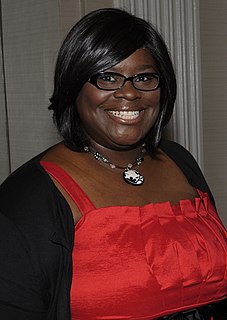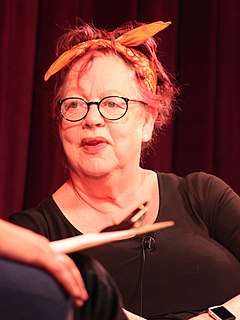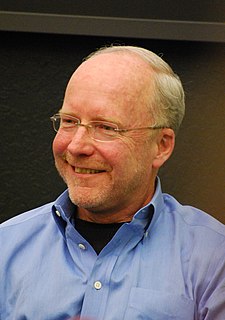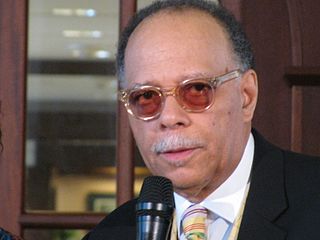A Quote by Bob Newhart
With the stand-up comic on TV, whether it's Seinfeld or Cosby or Roseanne, more important than their knowledge of how to tell a joke is their knowledge of themselves, or the persona they've created as themselves. So that when you're in a room with writers, you can say, 'Guys, that's a funny line, but I wouldn't say it.'
Related Quotes
Wisdom and knowledge can best be understood together. Knowledge is learning, the power of the mind to understand and describe the universe. Wisdom is knowing how to apply knowledge and how not to apply it. Knowledge is knowing what to say; wisdom is knowing whether or not to say it. Knowledge gives answers; wisdom asks questions. Knowledge can be taught, wisdom grows from experience.
Despite popular theories, I believe people fall in love based not on good looks or fate but on knowledge. Either they are amazed by something a beloved knows that they themselves do not know; or they discover a common rare knowledge; or they can supply knowledge to someone who's lacking. Hasn't everyone found a strange ignorance in someone beguiling? . . .Nowadays, trendy librarians, wanting to be important, say, Knowledge is power. I know better. Knowledge is love.
Well, part of it is a longstanding belief - it's been in our education establishment at least since the 1930s - that somehow children should be allowed to discover knowledge for themselves, that they should construct their own knowledge. This has surfaced most recently in connection with mathematics instruction, where the idea is that they need to discover how to add for themselves. Rather than being taught how to add, they should construct this knowledge on their own.
When I'm writing, especially when I'm writing in first person, I don't think about the characterization, or how they are going to express themselves, I just express my own approach to these things. I think most writers can never divorce themselves from their private lives and personas; they are the ones that are writing. And the more they remove themselves from their own persona, the more, perhaps, mechanical the work becomes.
All types of knowledge ultimately lead to self-knowledge. So, therefore, these people are asking me to teach them, not so much how to defend themselves or how to do somebody in. Rather, they want to learn to express themselves through some movement, be it anger, be it determination or whatever. So, in other words, they're paying me to show them, in combative form, the art of expressing the human body.


































